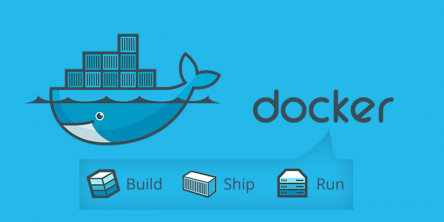5 Benefits of VPS Hosting for Your Website
Virtual private servers allow small businesses to host their website or application for a lower cost than traditional dedicated web-hosting options. They've grown popular in the last few years because of their ease of use and the control they give businesses managing their own websites. With less downtime and more scalability options, a VPS may be a better hosting solution for your business than shared or dedicated hosting.
More Reliable
For years, the best solution for small businesses was to host their site with a shared hosting provider. Unfortunately, providers started overselling pieces of their servers and customers saw performance and reliability issues increase. Because there's little regulation in the types of websites that can be hosted on a shared hosting plan, unplanned downtime caused by inexperienced webmasters or other website owners is common. VPS solutions create virtual segments on a server that are protected from tinkering or downtime on other containers.
Better Control
VPS hosting also gives website owners more control than a shared hosting package. Because shared web hosts have to host a variety of sites and applications, they create one-size-fits-all management software to cover a variety of use cases. With a VPS, CIOs or business owners can develop custom applications to meet their business' exact needs. Bypassing security restrictions and hardware limits of shared servers, VPS solutions make running your web server exactly the way you want to a breeze.
Resource Efficiency
Dedicated servers are wildly inefficient. Most small business websites aren't using 100% of their resources at all times, which leads to wasted electricity and higher hosting costs. A VPS gives you much of the same power without the added cost. By separating a larger server into virtual slices that automatically allocate resources, you can save on hosting costs while helping cut down on wasted energy. These green servers are popular not only for their cost reductions but also for their environmentally friendly resource allocation.
Scaling Up
If you're a large business, you can likely predict when you'll see spikes in sales or web traffic. As a small business owner, your scalability may be a little more unpredictable. A virtual server easily adapts to your changing needs. Your hosting provider can upgrade your hosting plan size without any downtime on your site every time your needs change.
One of the benefits of VPS hosting is that each VPS is hosted within a container or a virtually apportioned slice of a larger server. Containers aren't physically limited to the hardware within the server, meaning if you decide you'd like to upgrade your capacity, containers can be automatically adjusted to divert more computing power to their tasks. Without the need to replace physical hardware, a VPS can grow or shrink within a matter of minutes to handle changing server loads.
Cost-Conscious Option
VPS hosting has continued to decrease in cost. As computing technology advances, hosting providers are increasing the power of their servers and decreasing the cost of individual solutions. VPS hosting can start around $10/month, a comparable cost to shared hosting options, but without the headaches associated the latter option. If you're familiar with hosting your own website as well, you'll likely get a management dashboard that looks similar to the ones you've used before, allowing you to get up and running quickly.
As you're choosing the right web hosting for your business, try to figure out your monthly traffic and server loads before deciding on a solution. If your business is currently growing, the benefits of VPS hosting may allow you to focus more of your energy on growing your business than worrying about your website's uptime.
Similar Articles
When it comes to SEO and website promotion, then the details are those who play the most important role in the end. One of those - usually not given the needed gravity - is the choice of your web hosting provider. Future Webmasters most of the time, hosting is one of the last stuff to think.
The abbreviation of RAID is Redundant Array of Independent Disks. It creates a single usable data disk in which multiple physical disks are combined into one set for improved speed and error tolerance. Although there are several levels of RAID types: RAID 0, RAID 1, RAID 5, RAID 6, and RAID 10 that use hardware RAID controllers for all RAID performance levels deployed, and increase reliable solutions.
When you have decided to use web hosting service for your site, you might have to complete appropriate research before making your final choice. Quite frankly, a hosting service is among the necessities of building your site and making it visible through the world wide web.
Reseller web hosting is a web hosting platform which is used by a registered user to host websites with the help of personal drive capacity and bandwidth. In reseller hosting, the host creates an account and sells these to earn a certain profit.
Docker doesn’t need an introduction. By now Docker & containers have become a common term due to their immense popularity. But do you know what has led to the widespread use of these technologies?
Technology is developing rapidly and bringing about amazing changes. Web hosting has undergone a transformation with the advent of the virtual hosting. VPS server hosting had bridged the vast gap between the shared hosting and dedicated hosting.
Have you just started with a website of your own or has it been just a few months? You may have started with just a 3-4 page online platform for the marketing of your business but you should be ready for an unexpectedly high response on your site.
With so many options available, choosing a good dedicated hosting provider can be tough. This article will walk you through the most important things to consider when looking for cheap dedicated web hosting.
Businesses of all sizes, regardless of industries they belong to and geographies now prefer cloud services. Adoption of cloud server has increased significantly in the recent past. So why are so many companies turning to the cloud?









